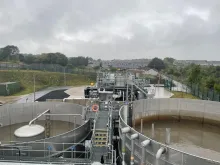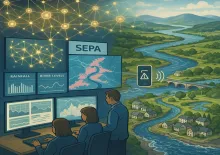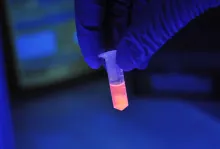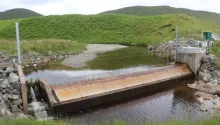Research Funding cycle: 2022-27
Review of psychoactive substances wastewater monitoring approaches and recommendations for the feasibility of applying different approaches in Scotland
Scotland faces a critical public health crisis with one of the highest drug-related death rates in the developed world. Polysubstance use further complicates this issue, creating unpredictable health risks for users. Efforts to address this crisis include the National Drugs Mission Plan (2022–2026), which emphasizes reducing drug-related deaths through improved data collection and harm reduction strategies.
Review of monitoring approaches to deliver healthy ecosystems for Scotland's protected fresh waters and wetlands
NatureScot is committed to reversing the decline in freshwater biodiversity by protecting and improving ecosystem health in protected areas. This effort aligns with Scotland’s goal to safeguard 30% of its land and sea by 2030. This project makes recommendations on a monitoring framework that would inform management decisions to deliver healthy ecosystems. To achieve this, monitoring efforts must shift toward a broader landscape or catchment-scale approach, providing a more comprehensive understanding of freshwater and wetland ecosystems.
Water and Society
CREW is governed according to key policy areas in Scotland’s water sector including flooding, water scarcity, coastal erosion, catchment management, rural sustainability, water quality and health, and resource recovery. Cross-cutting activities focus on adapting to climate change, land use and urbanisation, promoting the circular economy, a post-COVID green recovery, the move to net zero and a just transition for communities.
All our work has an overarching consideration of maximising the benefits of research to society and the environment.
CRW2023_02: Creating healthy and resilient river systems across Scotland: prioritising research and development gap opportunities for river woodlands.
CREW Code: CRW2023_02
Theme: Hydrological Extremes Coasts and Risk Management
Project status: Project complete. Click here to visit the publication page to view the project outputs.
Type of project: Capacity Building
Lead research team: The James Hutton Institute
CRW2024_05 Planning for water scarcity: building resilience and managing water for efficient irrigation
Type of project: Capacity Building Project
Overview: This project will produce practical guidance for Scottish farmers and growers on how to effectively plan for water scarcity and manage water efficiently for irrigation, to increase resilience to water scarcity.
Project Status: Project in progress
Project lead: SRUC
Utility of wastewater surveillance for detecting and monitoring emerging and re-emerging pathogens and endemic infections
Type of project: Hydro Nation International Centre (HNIC) Call Down
Project Status: Project complete. The report can be accessed via the HNIC website here
Overview: This project conducted a rapid evidence review and synthesis on the utility of wastewater surveillance for detecting and monitoring emerging and re-emerging pathogens (e.g. measles) and endemic infections, including blood-borne viruses and enteric viruses.
Environmentally effective and cost-efficient sediment management at impoundments
Impoundments on rivers are often critical for purposes such as power generation and water supply yet they can also reduce or prevent the natural movement of sediment downstream. Accumulation of sediment behind an impoundment can pose a risk to its intended use and result in adverse ecological consequences downstream due to sediment not being naturally replenished. This project developed initiatives to raise awareness of the commercial and environmental risks associated with sediment discontinuity caused by impoundments.
CD2024_03 Scottish One Health AMR Register (SOHAR): Update to support and underpin UK AMR NAP 2024-2029 – Workstream 6 (Scotland) activities
CREW Code: CD2024_03
Theme: Water Quality and Health
Project status: Project complete. Click here to visit the publication page to view the project outputs.
Type of project: Call Down
Lead research team: The University of Strathclyde









